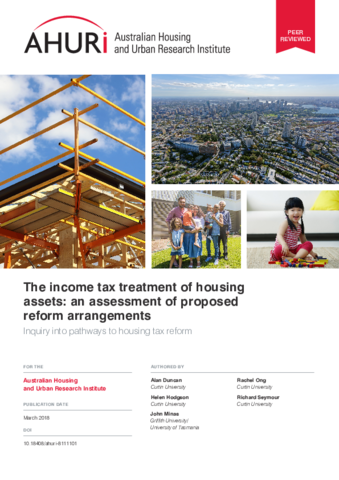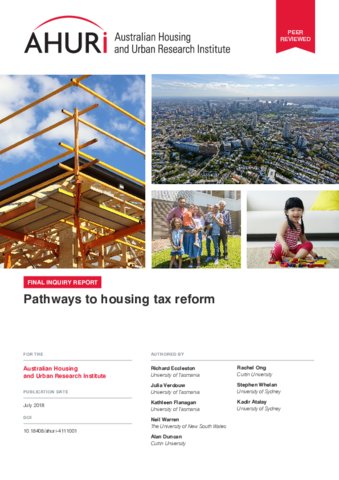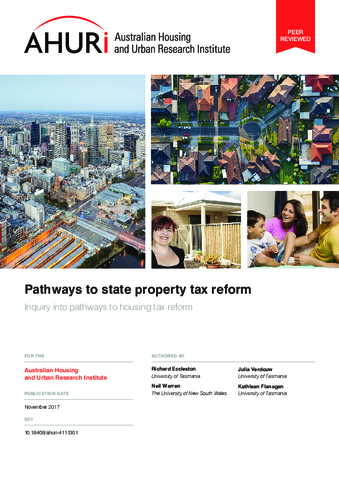This research develops a pragmatic pathway to subnational housing tax reform and provides a commentary on the political and administrative challenges that can undermine any reform initiative.
It highlights the need to set national reform priorities and to develop a coordinated approach to property tax reform while still granting state and local governments the right to determine policy settings and the trajectory of reform.
The immediate focus of the pathway is on implementing administrative reforms designed to provide a foundation on which future property tax reforms can be built, such as developing nationally consistent valuation methods for residential property and establishing a national register of property valuations and ownership; in the short term the focus should be on creating a simpler and fairer transfer duties regime; in the medium term the focuses on shifting the tax incidence of transfer duties on residential property from owner-occupiers purchasing lower value properties toward investors and those purchasing high-value properties; and finally long-term the research finds that replacing property-related transfer duties with a broad-based recurrent property tax would contribute to housing policy goals and deliver a range of economic and social dividends.
Despite the benefits of reform, the report acknowledges that the implementation of a new, broad-based tax on households will be challenging and will only be achievable if the wider benefits for housing affordability, intergenerational equity and economic efficiency are widely promoted.





